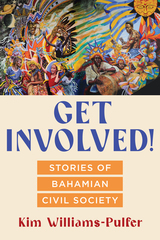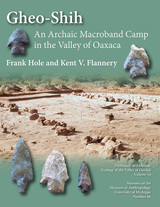10 start with F start with F

Winner, Tullis Prize, Texas State Historical Association, 2004
Private First Class Felix Longoria earned a Bronze Service Star, a Purple Heart, a Good Conduct Medal, and a Combat Infantryman's badge for service in the Philippines during World War II. Yet the only funeral parlor in his hometown of Three Rivers, Texas, refused to hold a wake for the slain soldier because "the whites would not like it." Almost overnight, this act of discrimination became a defining moment in the rise of Mexican American activism. It launched Dr. Héctor P. García and his newly formed American G.I. Forum into the vanguard of the Mexican civil rights movement, while simultaneously endangering and advancing the career of Senator Lyndon B. Johnson, who arranged for Longoria's burial with full military honors in Arlington National Cemetery.
In this book, Patrick Carroll provides the first fully researched account of the Longoria controversy and its far-reaching consequences. Drawing on extensive documentary evidence and interviews with many key figures, including Dr. García and Mrs. Longoria, Carroll convincingly explains why the Longoria incident, though less severe than other acts of discrimination against Mexican Americans, ignited the activism of a whole range of interest groups from Argentina to Minneapolis. By putting Longoria's wake in a national and international context, he also clarifies why it became such a flash point for conflicting understandings of bereavement, nationalism, reason, and emotion between two powerful cultures—Mexicanidad and Americanism.
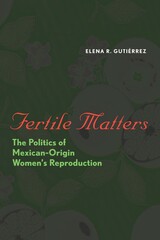
While the stereotype of the persistently pregnant Mexican-origin woman is longstanding, in the past fifteen years her reproduction has been targeted as a major social problem for the United States. Due to fear-fueled news reports and public perceptions about the changing composition of the nation's racial and ethnic makeup—the so-called Latinization of America—the reproduction of Mexican immigrant women has become a central theme in contemporary U. S. politics since the early 1990s.
In this exploration, Elena R. Gutiérrez considers these public stereotypes of Mexican American and Mexican immigrant women as "hyper-fertile baby machines" who "breed like rabbits." She draws on social constructionist perspectives to examine the historical and sociopolitical evolution of these racial ideologies, and the related beliefs that Mexican-origin families are unduly large and that Mexican American and Mexican immigrant women do not use birth control.
Using the coercive sterilization of Mexican-origin women in Los Angeles as a case study, Gutiérrez opens a dialogue on the racial politics of reproduction, and how they have developed for women of Mexican origin in the United States. She illustrates how the ways we talk and think about reproduction are part of a system of racial domination that shapes social policy and affects individual women's lives.
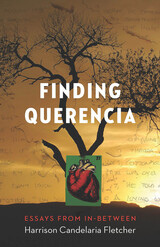
With its roots in the Spanish verb querer—“to want, to love”—the term querencia has been called untranslatable but has come to mean a place of safety and belonging, that which we yearn for when we yearn for home. In this striking essay collection, Harrison Candelaria Fletcher shows that querencia is also a state of being: the peace that arises when we reconcile who we are. A New Mexican of mixed Latinx and white ethnicity, Candelaria Fletcher ventures into the fault lines of culture, landscape, and spirit to discover the source of his lifelong hauntings. Writing in the persona of coyote, New Mexican slang for “mixed,” he explores the hyphenated elements within himself, including his whiteness. Blending memory, imagination, form, and language, each essay spirals outward to investigate, accept, and embrace hybridity. Ultimately, Finding Querencia offers a new vocabulary of mixed-ness, a way to reconcile the crosscurrents of self and soul.
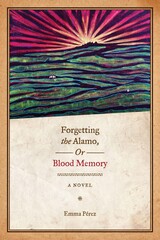
Runner-up, Best Historical Fiction in English, Latino Book Awards Competition, 2010
This literary adventure takes place in nineteenth-century Texas and follows the story of a Tejana lesbian cowgirl after the fall of the Alamo. Micaela Campos, the central character, witnesses the violence against Mexicans, African Americans, and indigenous peoples after the infamous battles of the Alamo and of San Jacinto, both in 1836. Resisting an easy opposition between good versus evil and brown versus white characters, the novel also features Micaela's Mexican-Anglo cousin who assists and hinders her progress. Micaela's travels give us a new portrayal of the American West, populated by people of mixed races who are vexed by the collision of cultures and politics. Ultimately, Micaela's journey and her romance with a black/American Indian woman teach her that there are no easy solutions to the injustices that birthed the Texas Republic.
This novel is an intervention in queer history and fiction with its love story between two women of color in mid-nineteenth-century Texas. Pérez also shows how a colonial past still haunts our nation's imagination. The battles of the Alamo and San Jacinto offered freedom and liberty to Texans, but what is often erased from the story is that common people who were Mexican, Indian, and Black did not necessarily benefit from the influx of so many Anglo immigrants to Texas. The social themes and identity issues that Pérez explores—political climate, debates over immigration, and historical revision of the American West—are current today.
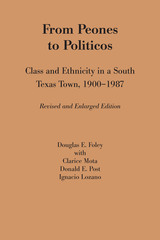
How does a relatively powerless ethnic group deal with the problems of economic inequality and racial discrimination? How do they gain power in the community? From Peones to Politicos examines these questions in detail, focusing on the changes in Mexicano-Anglo relations in one small South Texas community called North Town. These changes are typical of evolving Mexicano-Anglo relations in much of Texas and the Southwest.
The authors divide their study into three historical periods: the rancho era (1900–1930), the colonia era (1930–1970), and the contemporary period (1970–1977). They trace how Mexicano-Anglo relations have evolved away from the extremely exploitative, paternalistic sharecropper system of the rancho era, when open racism, strict social segregation, and effective Anglo political machines prevailed. They reveal, by contrast, how Mexicanos have become a power to be reckoned with by developing their own economic and political leaders and ethnic political organizations and challenging the Anglo control of the city, school, and county governments. The study also shows how Mexican American family practices have been changed by this transformation of the local political economy.
This revised edition of From Peones to Politicos presents updated fieldwork and additional discussion of class theory and the study of racial orders. Of special interest are reactions to the study by North Town residents themselves, which appear in the new Part IV.

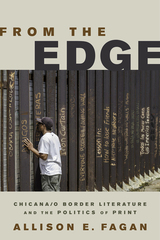
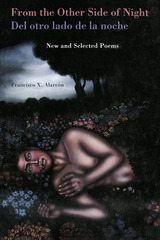
One of Chicano literature's premier poets, Alarcón has brought his luminous images to the page in such acclaimed volumes as Sonnets to Madness and Other Misfortunes and Snake Poems. Now he has assembled the best of his work from fifteen years, along with fourteen new poems, in a book that distills his magical sense of reality into a cup brimming with passion.
Raised in Guadalajara and now living in the San Francisco Bay area, Alarcón sees that " 'Mexican' / is not / a noun / or an / adjective / 'Mexican' / is a life / long / low-paying / job." Participating in a poetic tradition that goes back to the mystic Spanish poets of the sixteenth century, he brings us sonnets infused with romance and tenderness—and shorter poems that are direct and hard-hitting commentaries on American society, as he cries out for "a more godlike god," one "who spends nights / in houses / of ill repute / and gets up late / on Saturdays."
Alarcón invokes both the mysteries of Mesoamerica and the "otherness" of his gay identity. "My skin is dark / as the night / in this country / of noontime," he writes, "but my soul / is even darker / from all the light / I carry inside." In lyrical poems open to wide interpretation, he transcends ethnic concerns to address social, sexual, and historical issues of concern to all Americans. The fourteen new poems in From the Other Side of Night offer startling new commentaries on life and love, sex and AIDS.
Shifting effortlessly between English and Spanish—and even Nahuatl—Alarcón demonstrates the gift of language that has earned him both a wide readership and the admiration of fellow poets. With this book, he invites new readers to meet him where the darkness is palpable and the soul burns bright.
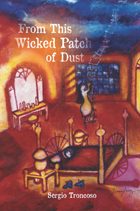
Spanning four decades, this is a story of a family’s struggle to become American and yet not be pulled apart by a maelstrom of cultural forces. As a young adult, daughter Julieta is disenchanted with Catholicism and converts to Islam. Youngest son Ismael, always the bookworm, is accepted to Harvard but feels out of place in the Northeast where he meets and marries a Jewish woman. The other boys—Marcos and Francisco—toil in their father’s old apartment buildings, serving as the cheap labor to fuel the family’s rise to the middle class. Over time, Francisco isolates himself in El Paso while Marcos eventually leaves to become a teacher, but then returns, struggling with a deep bitterness about his work and marriage. Through it all, Pilar clings to the idea of her family and tries to hold it together as her husband’s health begins to fail.
This backdrop is then shaken to its core by the historic events of 2001 in New York City. The aftermath sends shockwaves through this newly American family. Bitter conflicts erupt between siblings and the physical and cultural spaces between them threaten to tear them apart. Will their shared history and once-common dreams be enough to hold together a family from Ysleta, this wicked patch of dust?
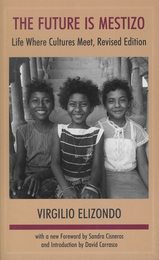
READERS
Browse our collection.
PUBLISHERS
See BiblioVault's publisher services.
STUDENT SERVICES
Files for college accessibility offices.
UChicago Accessibility Resources
home | accessibility | search | about | contact us
BiblioVault ® 2001 - 2024
The University of Chicago Press



